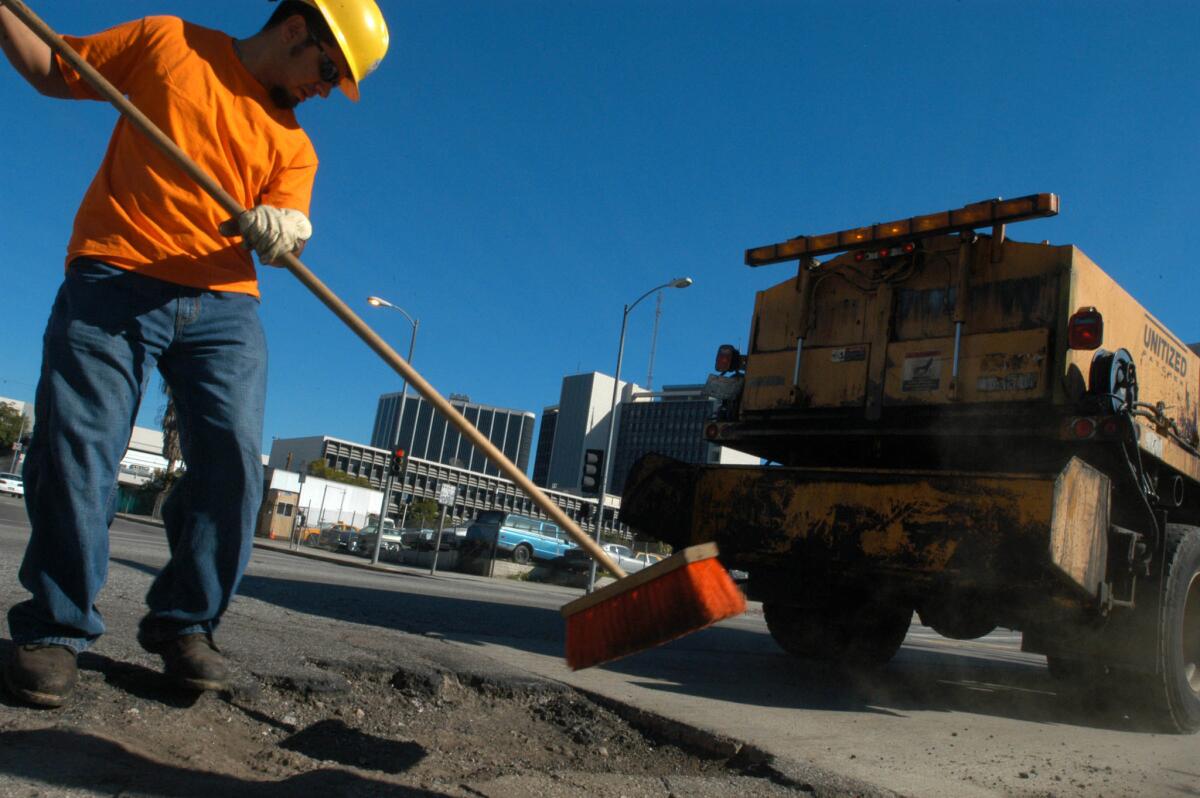City Council backs study of possible $3-billion street repair bond

The Los Angeles City Council voted Wednesday to further explore a $3-billion borrowing program to pay for the repair of 8,700 miles of badly damaged city streets.
City staff will report back in 45 days on a proposed property tax increase, which would have homeowners pay about 1% of the value of their home over 29 years. (For example, a $350,000 house would see $3,500 more in taxes over 29 years, or about $121 more each year.) That revenue would be used to resurface and rebuild the worst streets, part of a 60-year backlog of repairs.
Council members Joe Buscaino and Mitchell Englander hope to include a proposal to issue city bonds for the work on the fall 2014 ballot. A two-thirds majority of voters would have to approve issuing the debt.
Staff will examine whether that voter threshold can be lowered for infrastructure bonds, as well as whether the city could borrow against the tax revenue to accelerate the repairs in one decade, rather than three.
They will also look at a variety of other questions, including whether alleys and sidewalks could also be repaired with the money. Officials will also explore other funding options, including tolls, vehicle fees or a change to the California gas tax.
“When you hit a pothole in the city of Los Angeles, you not only feel it — you hear it,” Buscaino said. Damaged roads cost Los Angeles drivers an estimated $746 more a year in car repairs, he said.
Since 2005, the city has paid for normal upkeep and maintenance on streets of good quality, but has left a backlog of severely damaged roads largely untouched.
Laying down slurry seals — the dark coating of asphalt, oil and water that keeps roads with minimal damage in good condition — costs about $25,000 a mile. Digging up deeply cracked and pothole-riddled streets and rebuilding them can be 10 times as costly.
Between 2005 and 2013, the estimated cost to repair the worst roads doubled from $1.5 billion to $3 billion. Officials say that if they do not act now, the cost will double again in the next decade.
[For the record, Aug. 21, 5:43 p.m.: An earlier version of this post incorrectly stated the proposal would have homeowners pay a 1% increase in property tax for 29 years, rather than 1% of the value of their property over the course of 29 years.]
ALSO:
Fire in Panorama City industrial building extinguished
Rim fire near Yosemite out of control, threatens 2,500 structures
Hannah Anderson’s kidnapper may have been her father, his family says
Twitter: @laura_nelson
More to Read
Sign up for Essential California
The most important California stories and recommendations in your inbox every morning.
You may occasionally receive promotional content from the Los Angeles Times.











